Arts & Entertainment
Five decades of progress since Stonewall
20 events that shaped the LGBTQ movement
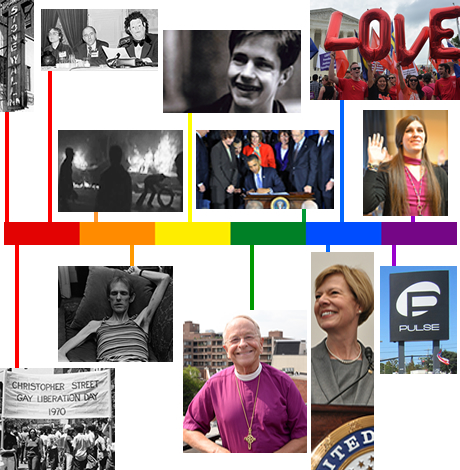
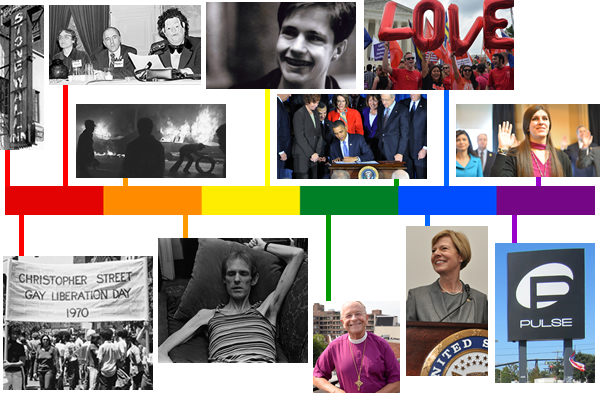
This month marks the 50th anniversary of the Stonewall riots, which are credited with launching the modern LGBTQ rights movement. Since that time, the country has seen tremendous progress in LGBTQ equality and acceptance. Here is a list of 20 events that have shaped the LGBT rights movement over the last 50 years.
June 28, 1970:
Upwards of 2,000 people took part in New York’s Christopher Street Liberation Day that commemorated the first anniversary of the Stonewall riots. This march is seen by many as one of the first Pride events.
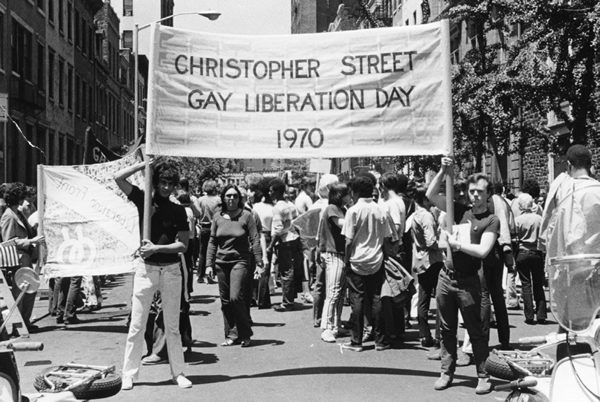
Dec. 15, 1973:
The American Psychological Association declassified homosexuality as a mental illness.

June 8, 1977:
Voters in Dade County, Fla., repealed a gay rights ordinance the Dade County Commission approved earlier in the year.
Anita Bryant’s campaign against the ordinance ahead of the referendum prompted outrage among LGBT activists across the country and a boycott of Florida orange juice. The Miami-Dade County Commission in 1998 approved a ban on discrimination based on sexual orientation.
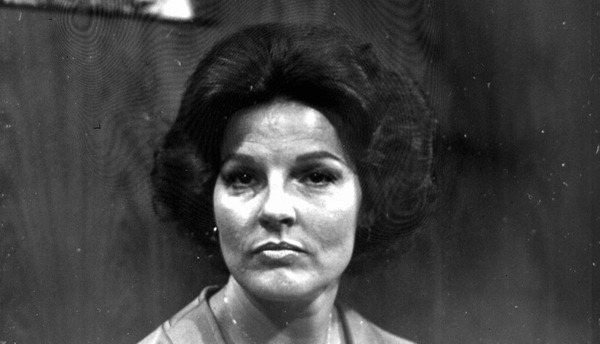
Nov. 27, 1978:
San Francisco Supervisor Dan White assassinated City Supervisor Harvey Milk and Mayor George Moscone inside San Francisco City Hall.
The assassination of Milk, a pioneering activist who was the first openly gay man elected in California, sparked an outpouring of grief that included a candlelight vigil in which up to 40,000 people participated. White’s sentence for voluntary manslaughter in connection with Milk’s murder sparked what became known as the White Night riots that took place in San Francisco in May 1979.

Oct. 14, 1979:
The National March on Washington for Lesbian and Gay Rights took place in D.C. The gathering was the first of several large LGBT rights marches that have taken place since the Stonewall riots.

July 3, 1981:
The New York Times published an article on a “rare and often rapidly fatal form of cancer” that later become known as AIDS.
The AIDS epidemic has killed more than an estimated 600,000 people in the U.S. It also sparked activism that persists to this day, even though medications and access to treatment have allowed many people with HIV/AIDS to live longer lives.
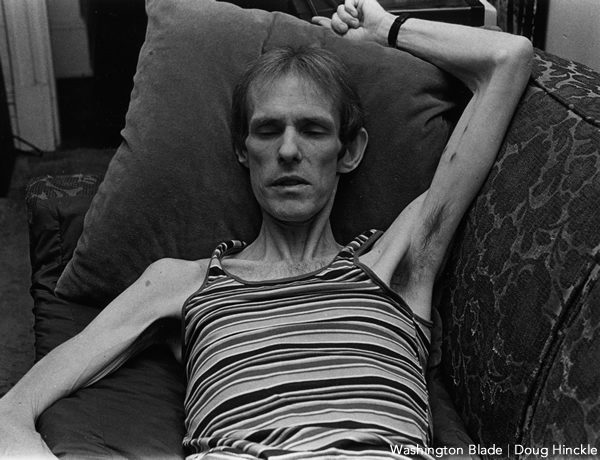
June 30, 1986:
The U.S. Supreme Court in a 5-4 ruling in Bowers v. Hardwick ruled the Constitution does not protect consensual same-sex sexual activity. The decision upheld a Georgia law that criminalized oral and anal sex among consenting adults.
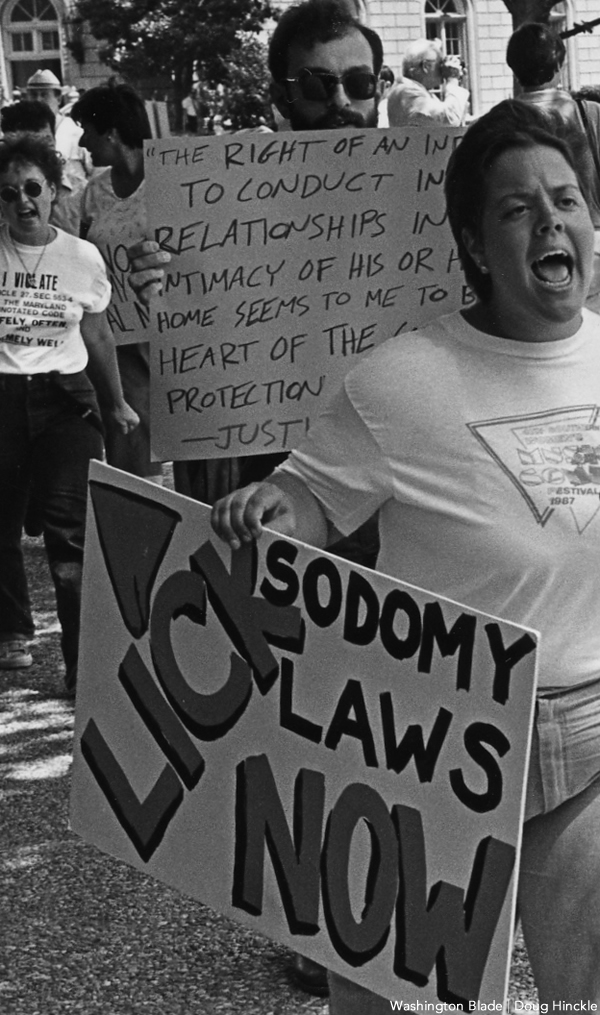
Sept. 20, 1996:
President Clinton signed the Defense of Marriage Act, which prevented the federal government from recognizing the marriages of same-sex couples that were legally performed.
Edith “Edie” Windsor challenged DOMA after she paid $363,000 in federal estate taxes when her wife passed away in 2009. The U.S. Supreme Court in 2013 found DOMA unconstitutional.
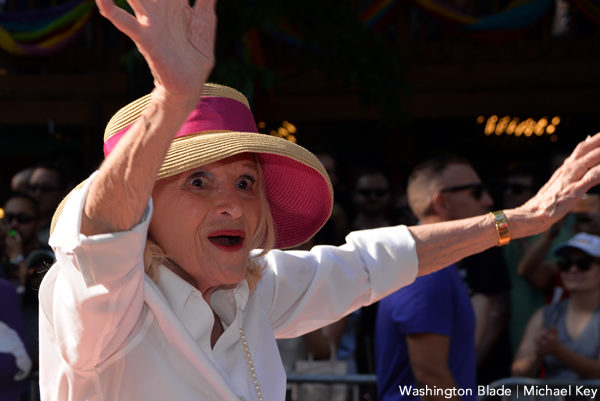
Oct. 12, 1998:
Matthew Shepard, a gay Wyoming college student, died after two men brutally beat him and left him tied to a fence.
Shepard’s death sparked outrage across the country. It also prompted his parents, Dennis and Judy Shepard, to become vocal LGBT activists through their work with the Matthew Shepard Foundation they created after their son’s murder.
President Obama in 2009 signed the Matthew Shepard and James Byrd Jr. Hate Crimes Prevention Act, which added sexual orientation and gender identity to the federal hate crimes law.
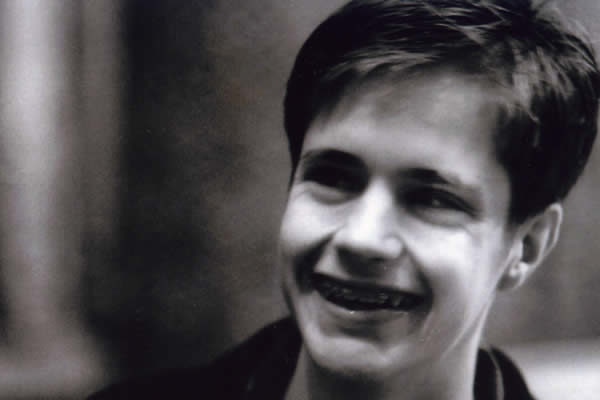
June 29, 1999:
James Hormel became the first openly gay U.S. ambassador.
President Clinton named Hormel to represent the U.S. in Luxembourg. More than half a dozen other openly gay men have been named ambassadors since 1999. These include current U.S. Ambassador to Germany Richard Grenell.
June 26, 2003:
The U.S. Supreme Court in a 6-3 ruling in Lawrence v. Texas ruled sodomy laws are unconstitutional.
Nov. 2, 2003:
New Hampshire Bishop V. Gene Robinson became the first openly gay bishop ordained by the Episcopal Church.
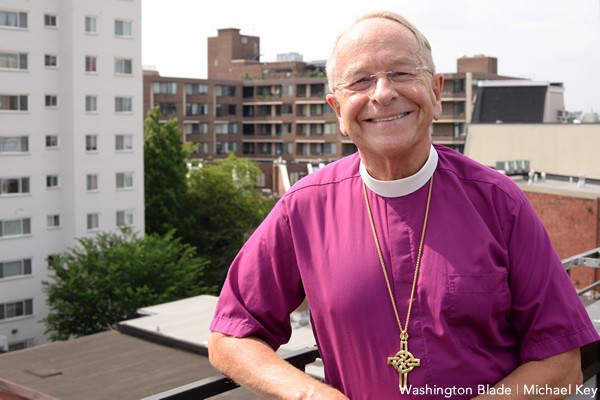
May 17, 2004:
Massachusetts became the first state in the U.S. to allow same-sex couples to legally marry.
Feb. 1, 2009:
Jóhanna Sigurðardóttir became the world’s first openly LGBT head of government when she was sworn in as Iceland’s prime minister.
Sigurðardóttir left office in 2013.
Irish Prime Minister Leo Varadkar and Luxembourgish Prime Minister Xavier Bettel are openly gay, while Serbian Prime Minister Ana Brnabić is a lesbian. Elio Di Rupo, who was Belgium’s prime minister from 2011-2014, is also openly gay.
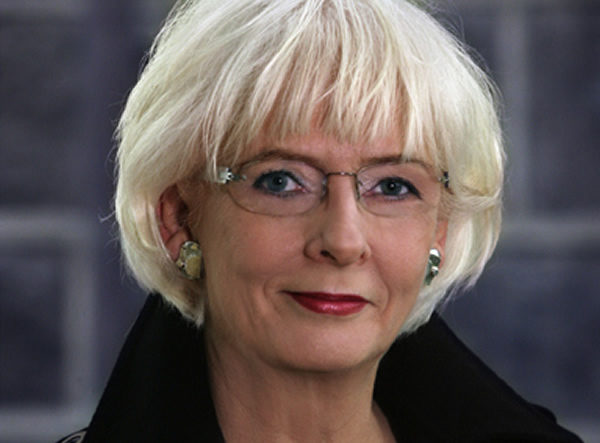
Sept. 20, 2011:
“Don’t Ask, Don’t Tell,” the law that prohibited openly gay people from serving in the U.S. military, was officially repealed.
“As of today, patriotic Americans in uniform will no longer have to lie about who they are in order to serve the country they love,” said then-President Obama. “As of today, our armed forces will no longer lose the extraordinary skills and combat experience of so many gay and lesbian service members.”
The Pentagon in 2016 announced it would no longer prohibit openly transgender people from the military. The Trump administration has reinstituted this ban.
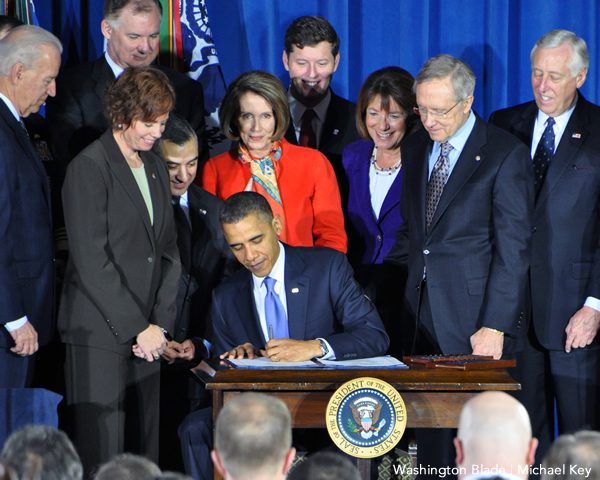
Nov. 6, 2012:
Tammy Baldwin became the first openly LGBT person elected to the U.S. Senate.
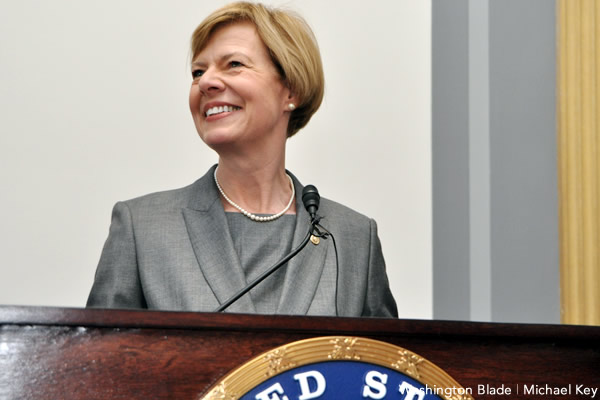
June 26, 2015:
The U.S. Supreme Court in a 5-4 ruling in Obergefell v. Hodges extended marriage rights to same-sex couples across the country.
James Obergefell, who was the lead plaintiff in the case, legally married his late-husband, John Arthur, on the tarmac of Baltimore-Washington International Thurgood Marshall Airport in 2013 after the Supreme Court struck down DOMA. The couple’s home state of Ohio did not legally recognize their wedding.
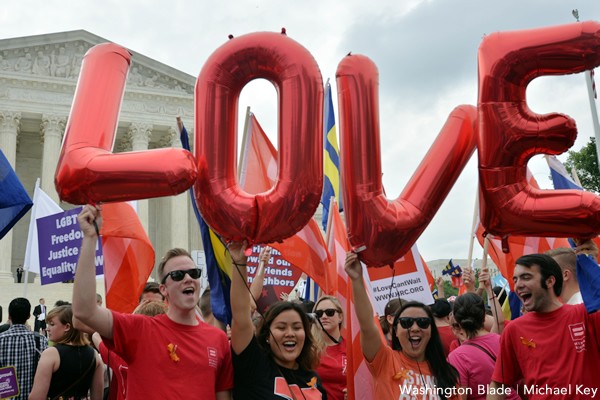
June 12, 2016:
A gunman killed 49 people inside Pulse, a gay nightclub in Orlando, Fla.
The massacre was the deadliest mass shooting in modern U.S. history until a gunman killed 58 people and injured more than 500 others at a Las Vegas concert on Oct. 1, 2017.
The Pulse nightclub massacre sparked renewed calls for gun control from LGBT rights advocates and their supporters. It also prompted President Trump, who was running for president, to renew his calls to temporarily ban Muslims from entering the U.S.
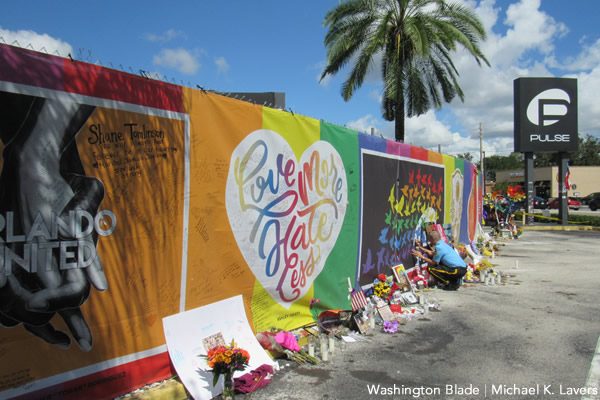
Nov. 7, 2017:
Danica Roem became the first openly transgender person elected to a state legislature in the U.S. when she defeated then-Virginia state Del. Bob Marshall (R-Prince William County), a vocal opponent of LGBT rights.
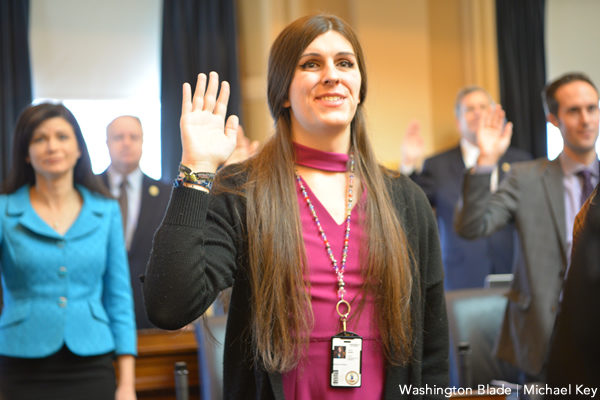
Nov. 6, 2018:
Colorado Gov. Jared Polis became the first out person elected governor of a U.S. state.
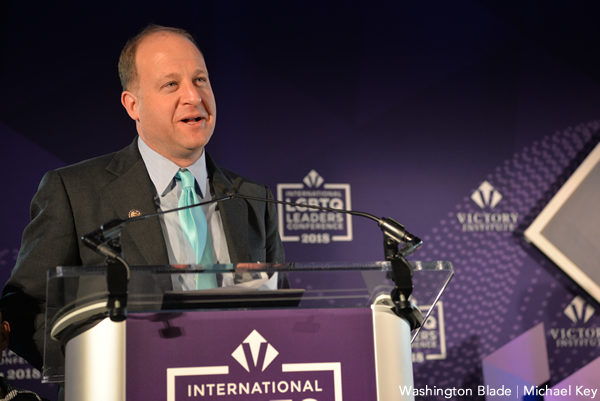
Photos
PHOTOS: Montgomery County Pride in the Plaza
LGBTQ celebration held in downtown Silver Spring

Montgomery County Pride in the Plaza was held on Sunday, June 29 at Veterans Plaza in Silver Spring, Md.
(Washington Blade photos by Michael Key)























The fifth annual Fredericksburg Pride march and festival was held on Saturday, June 28. A march through the streets of downtown Fredericksburg, Va. was followed by a festival at Riverfront Park.
(Washington Blade photos by Michael Key)



















India
Anaya Bangar challenges ban on trans women in female cricket teams
Former Indian cricketer Sanjay Bangar’s daughter has received support

Anaya Bangar, the daughter of former Indian cricketer Sanjay Bangar, has partnered with the Manchester Metropolitan University Institute of Sport in the U.K. to assess her physiological profile following her gender-affirming surgery and undergoing hormone replacement therapy.
From January to March 2025, the 23-year-old underwent an eight-week research project that measured her glucose levels, oxygen uptake, muscle mass, strength, and endurance after extensive training.
The results, shared via Instagram, revealed her metrics align with those of cisgender female athletes, positioning her as eligible for women’s cricket under current scientific standards. Bangar’s findings challenge the International Cricket Council’s 2023 ban on transgender athletes in women’s cricket, prompting her to call for a science-based dialogue with the Board of Control for Cricket in India and the ICC to reform policies for trans inclusion.
“I am talking with scientific evidence in my hand,” Bangar said in an interview posted to her Instagram page. “So, I hope, this makes an impact and I will be hoping to BCCI and ICC talking with me and discussing this further.”
On Nov. 21, 2023, the ICC enacted a controversial policy barring trans women from international women’s cricket. Finalized after a board meeting in Ahmedabad, India, the regulation prohibits any trans player who has experienced male puberty from competing, irrespective of gender-affirming surgery or hormone therapy. Developed through a 9-month consultation led by the ICC’s Medical Advisory Committee, the rule aims to safeguard the “integrity, safety, and fairness” of women’s cricket but has drawn criticism for excluding athletes like Canada’s Danielle McGahey, the first trans woman to play internationally. The policy, which allows domestic boards to set their own rules, is slated for review by November 2025.
Bangar shared a document on social media verifying her participation in a physiological study at the Manchester Metropolitan University Institute of Sport, conducted from Jan. 20 to March 3, 2025, focused on cricket performance. The report confirmed that her vital metrics — including hemoglobin, blood glucose, peak power, and mean power — aligned with those of cisgender female athletes. Initially, her fasting blood glucose measured 6.1 mmol/L, slightly above the typical non-diabetic range of 4.0–5.9 mmol/L, but subsequent tests showed it normalized, reinforcing the study’s findings that her physical profile meets female athletic standards.
“I am submitting this to the BCCI and ICC, with full transparency and hope,” said Bangar. “My only intention is to start a conversation based on facts not fear. To build space, not divide it.”
In a letter to the BCCI and the ICC, Bangar emphasized her test results from the Manchester Metropolitan University study. She explained that the research aimed to assess how hormone therapy had influenced her strength, stamina, hemoglobin, glucose levels, and overall performance, benchmarked directly against cisgender female athletic standards.
Bangar’s letter to the BCCI and the ICC clarified the Manchester study was not intended as a political statement but as a catalyst for a science-driven dialogue on fairness and inclusion in cricket. She emphasized the importance of prioritizing empirical data over assumptions to shape equitable policies for trans athletes in the sport.
Bangar urged the BCCI, the world’s most influential cricket authority, to initiate a formal dialogue on trans women’s inclusion in women’s cricket, rooted in medical science, performance metrics, and ethical fairness. She called for the exploration of eligibility pathways based on sport-specific criteria, such as hemoglobin thresholds, testosterone suppression timelines, and standardized performance testing. Additionally, she advocated for collaboration with experts, athletes, and legal advisors to develop policies that balance inclusivity with competitive integrity.
“I am releasing my report and story publicly not for sympathy, but for truth. Because inclusion does not mean ignoring fairness, it means measuring it, transparently and responsibly,” said Bangar in a letter to the BCCI. “I would deeply appreciate the opportunity to meet with you or a representative of the BCCI or ICC to present my findings, discuss possible policy pathways, and work towards a future where every athlete is evaluated based on real data, not outdated perceptions.”
Before her transition, Bangar competed for Islam Gymkhana in Mumbai and Hinckley Cricket Club in the U.K., showcasing her talent in domestic cricket circuits. Her father, Sanjay Bangar, was a dependable all-rounder for the Indian national cricket team from 2001 to 2004, playing 12 test matches and 15 One Day Internationals. He later served as a batting coach for the Indian team from 2014 to 2019, contributing to its strategic development.
Cricket in India is a cultural phenomenon, commanding a fanbase of more than 1 billion, with more than 80 percent of global cricket viewership originating from the country.
The International Cricket Council, the sport’s governing body, oversees 12 full member nations and more than 90 associate members, with the U.S. recently gaining associate member status in 2019 and co-hosting the 2024 ICC Men’s T20 World Cup. The BCCI generated approximately $2.25 billion in revenue in the 2023–24 financial year, primarily from the Indian Premier League, bilateral series, and ICC revenue sharing. The ICC earns over $3 billion from media rights in India alone for the 2024–27 cycle, contributing nearly 90 percent of its global media rights revenue, with the BCCI receiving 38.5 percent of the ICC’s annual earnings, approximately $231 million per year.
Women’s cricket in India enjoys a growing fanbase, with over 300 million viewers for the Women’s Premier League in 2024, making it a significant driver of the sport’s global popularity. The International Cricket Council oversees women’s cricket in 12 full member nations and over 90 associate members, with the U.S. fielding a women’s team since gaining associate status in 2019 and competing in ICC events like the 2024 Women’s T20 World Cup qualifiers. The BCCI invests heavily in women’s cricket, allocating approximately $60 million annually to the WPL and domestic programs in 2024–25, while contributing to the ICC’s $20 million budget for women’s cricket development globally. India’s media market for women’s cricket, including WPL broadcasting rights, generated $120 million in 2024, accounting for over 50 percent of the ICC’s women’s cricket media revenue.
“As a woman, I feel when someone says that they are women, then they are, be trans or cis. A trans woman is definitely the same as a cis woman emotionally and in vitals, and specially, when someone is on hormone replacement therapy. Stopping Anaya Bangar from playing is discrimination and violation of her rights. It is really sad and painful that every trans woman need to fight and prove their identity everywhere,” said Indrani Chakraborty, an LGBTQ rights activist and a mother of a trans woman. “If ICC and BCCI is stopping her from playing for being transgender, then I will say this to be their lack of awareness and of course the social mindsets which deny acceptance.”
Chakraborty told the Blade that Bangar is an asset, no matter what. She said that the women’s cricket team will only benefit by participation, but the discriminating policies are the hindrance.
“Actually the transgender community face such discrimination in every sphere. In spite of being potent, they face rejection. This is highly inhuman. These attitudes is regressive and will never let to prosper. Are we really in 2025?,” said Chakraborty. “We, our mindset and the society are the issues. We, as a whole, need to get aware and have to come together for getting justice for Anaya. If today, we remain silent, the entire community will be oppressed. Proper knowledge of gender issues need to be understood.”
The BCCI and the International Cricket Council have not responded to the Blade’s repeated requests for comment.



















